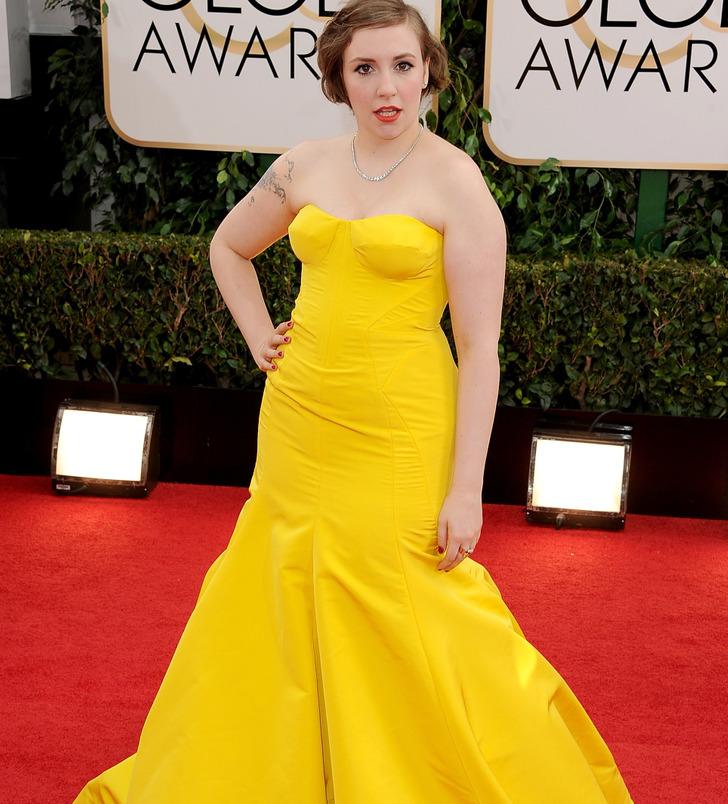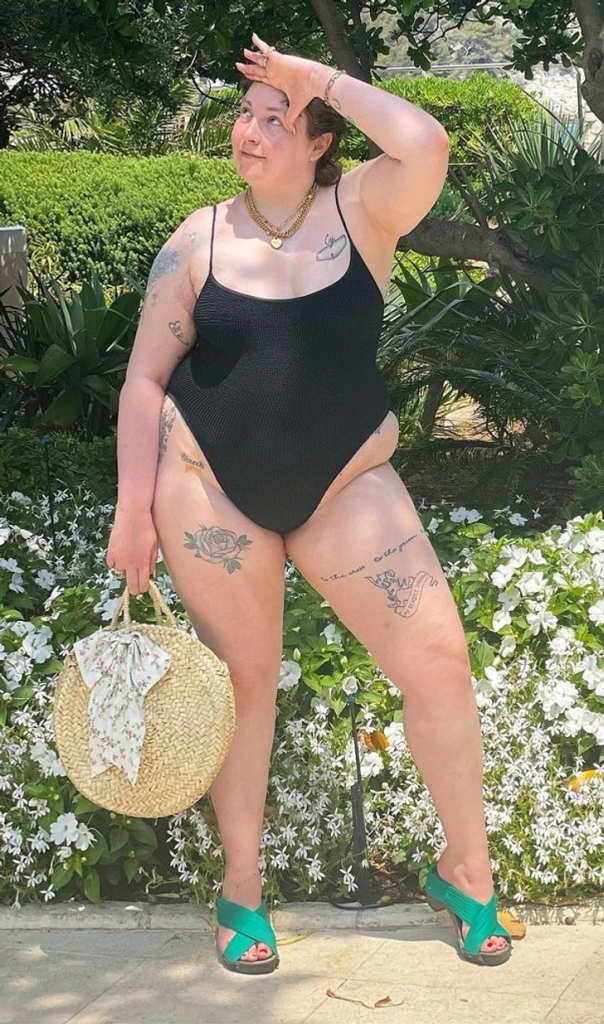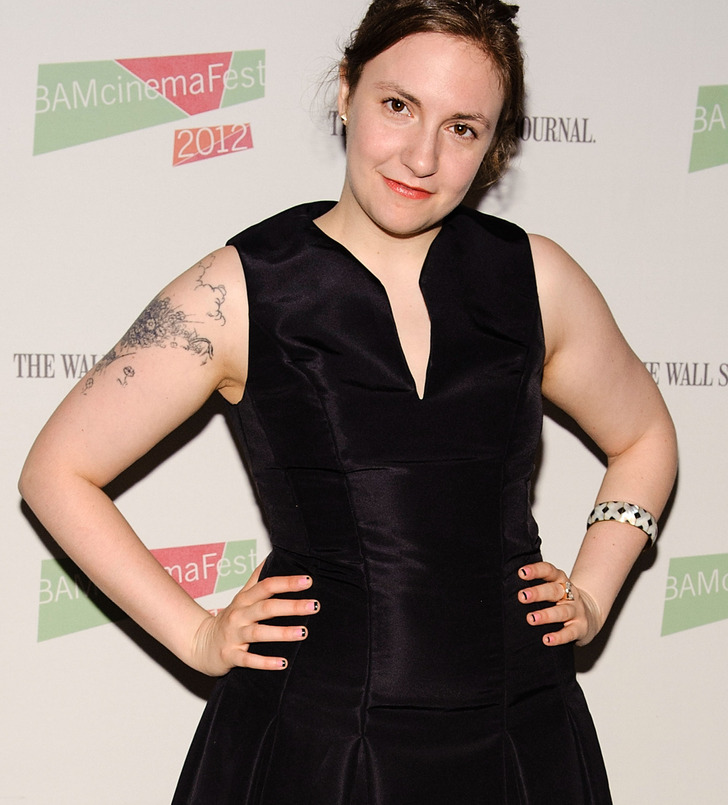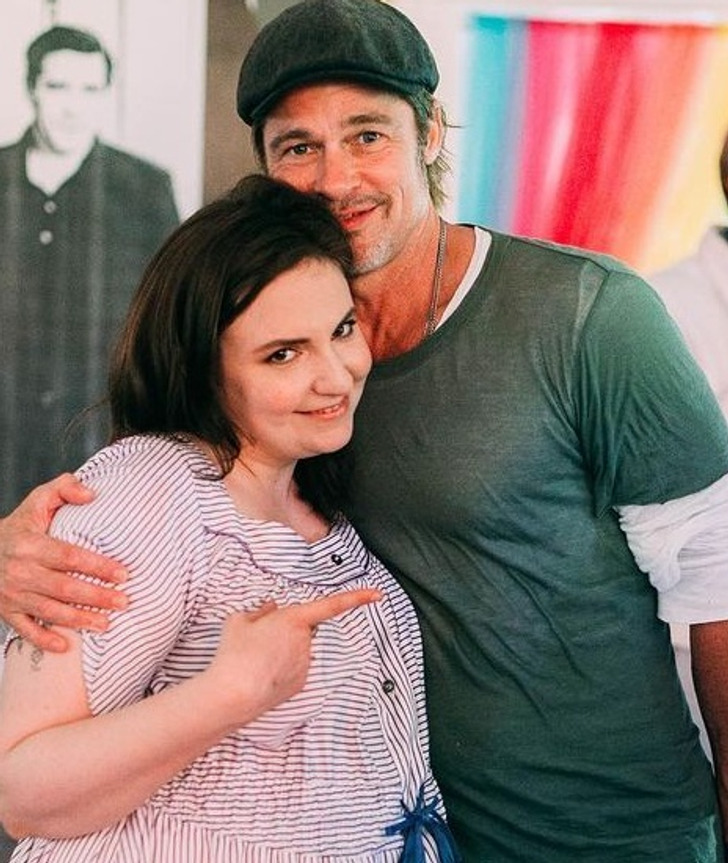There are so many things in the world that we may admire or even get inspired by, but there’s one main thing we may want to fall in love with before we start noticing the beauty of other things. It’s our own reflection in the mirror. Among all the numerous recipes for conjuring up self-love within ourselves, psychologists advise us to never compare ourselves to others and stop caring about other people’s opinions. Actress and producer Lena Dunham knows a lot about cultivating love for her own body despite all the criticism she faced, and she happily shares her journey with us all.
Lena Dunham doesn’t accept the term “body positivity,” and here’s why.



Actress and writer Lena Dunham has recently added another string to her bow and collaborated with the brand 11 Honoré to create a plus-size clothing collection. But the very term “plus size” frustrates Lena, and so is the term “body positivity.” In one of her Instagram posts, she explains that she feels more “body tolerant” than “body positive.”
In her interview, Dunham said, “The thing that’s complicated about the body-positive movement is it can be for the privileged few who have a body that looks the way people want to feel positive. We want curvy bodies that look like Kim Kardashian has been up-sized slightly. We want big beautiful butts and big beautiful breasts and no cellulite and faces that look like you could smack them onto thin women.”
Dunham has a very special relationship with her own body.



Dunhams path to self-love started with a decade-long journey with endometriosis. Since she started her own fight against it, she has been candidly sharing how it influenced both her emotional health and her relationship with her own body image. In her Instagram post, she emotionally described how she fluctuated between loving her body and the opposite.
She wrote, “Ya know when you’re home alone, and you realize you’d be happier in a hot lil’ onesie than your ketchup and cat food stained pajamas? And it’s not about a boy or a photo shoot or a weight loss before-and-after, it’s just for the feeling of glee you get from dressing your one and only corporeal form in pleasing fabrics, the unique pleasure of admiring the twists and turns of the body that loves the heck out of you even when you don’t love it.”
Dunham is powerfully addressing all people who come to her page with criticism.



In 2021, Dunham tied the knot with musician Luis Felber. It was such a darling event for her that she wore 3 wedding dresses to marry her love and shared the photos on her Instagram. However, she started getting some “gnarly” comments in her feed from people who commented on her body and appearance. The actress didn’t hesitate for a minute to address them with a powerful message.
She wrote, “One narrative I take issue with, largely because it’s a story I don’t want other women, other people, to get lodged in their heads, is that I should somehow be criticized because my body has changed since I was last on television. […] But lastly, when will we learn to stop equating thinness with health/happiness?”
Dunham’s powerful message can be echoed in the hearts of many.


For all people who have ever hesitated about embracing their body image, Dunham has some simple yet wise advice. She says, “Of course weight loss can be the result of positive change in habits, but guess what? So can weight gain. The pics I’m being compared to are from when I was with an undiagnosed illness. In the last 4 years, I’ve begun my life as someone who aspires toward health and not just achievement.
These changes have allowed me to be the kind of sister/friend/daughter that I want to be and yes — meet my husband (who, by the way, doesn’t recognize me in those old photos because he sees how dimmed my light was). I say this for any other person whose appearance has been changed with time, illness, or circumstance — it’s okay to live in your present body without treating it as transitional. I am, and I’m really enjoying it. Love you all.”
Do you find Lena Dunham’s example inspiring? What do you love the most about your appearance?
Preview photo credit Steve Granitz / WireImage / Getty Images, lenadunham / Instagram
Demanding Parents Expect Nanny to Pay $1000 for Vacation Flights, Their Harsh Reality Check

Jane’s employers planned a lavish vacation and invited her along to care for their children, promising to cover all expenses. However, upon returning home, they unexpectedly demanded that she pay back the $1,000 for her plane ticket. Jane was taken aback but refused to accept this situation.
One day, Mrs. Smith called Jane into the living room. While tidying up the playroom, Jane felt uneasy about the request. Mrs. Smith, composed and stylish, informed Jane they needed to discuss the vacation expenses. Jane acknowledged the lovely trip but was shocked when Mrs. Smith demanded repayment for the tickets. She couldn’t believe her ears when Mrs. Smith insisted she pay back the money they had initially said would be covered.
Overwhelmed, Jane explained that she couldn’t afford it, as most of her salary went toward rent and her mother’s medical needs. Mr. Smith, uninterested in her situation, confirmed that Jane had one week to pay or the amount would be deducted from her wages.
That evening, Jane was furious. She realized the Smiths valued their reputation more than anything else and decided to use that against them. She created a fake email account and wrote a polite message detailing her experience, leaving enough clues to point back to the Smiths. She sent the email to influential people in their social circle.
Soon, rumors began to spread, damaging the Smiths’ reputation. Jane overheard Mrs. Smith discussing the situation, revealing her distress. At the school pick-up, other nannies asked Jane if the gossip was true, and she confirmed that the Smiths were indeed unkind.
Days later, Mrs. Smith hosted a ladies’ luncheon. Jane attended, knowing it was an opportunity to share more about Mrs. Smith’s behavior. While mingling, she complimented Mrs. Smith’s handbag, hinting at her tendency to borrow and never return items. This sparked more whispers among the guests.
The next day, Mrs. Smith’s friends began demanding their belongings back. Upset, Mrs. Smith confronted Jane during dinner, suspecting her involvement in the email. When Mr. Smith questioned her directly, Jane remained silent, leading to her dismissal.
After moving back home, Jane received a call from Mrs. Johnson, who had heard about her situation and offered her a job with better pay and conditions. Grateful and relieved, Jane accepted the offer. She hoped the Smiths felt the sting of betrayal for their treatment of her.



Leave a Reply